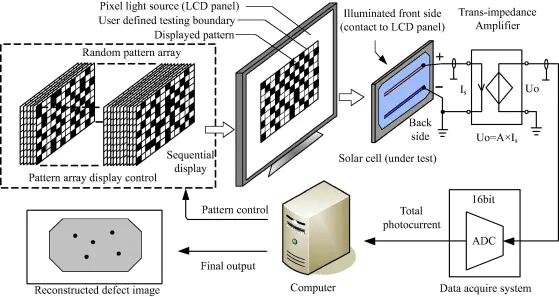Compressive light beam induced current sensing for fast defect detection in photovoltaic cells

Abstract
In this paper, a fast and efficient defect location system utilizing compressive sensing is proposed for detecting defects in solar cells. It measures the total output of the sample solar cell under excitation of patterns displayed by a liquid crystal display. Then the defects are located compressively by solving a convex problem using a small number of photo-electric current measurements — far fewer than the total possible number of testing points. The feasibility of proposed method and its detection performance were evaluated. The experimental results indicate that a sparse distribution of defects can be compressively located using measurements whose number is about 30–60% of all possible testing points and that the detection speed can be increased by a factor of 10–15 while retaining a reasonable accuracy. An additional advantage of the proposed detection system is that no mechanical moving components or optical lens are used and thus no mechanical instabilities or optical distortions are introduced. This advantage in particular means that there is significant potential to further improve the detection speed since electrical measurements can be very fast. Overall, the proposed method has significant potential for improving the efficiency and speed of inspection and classification of industrial photovoltaic devices.